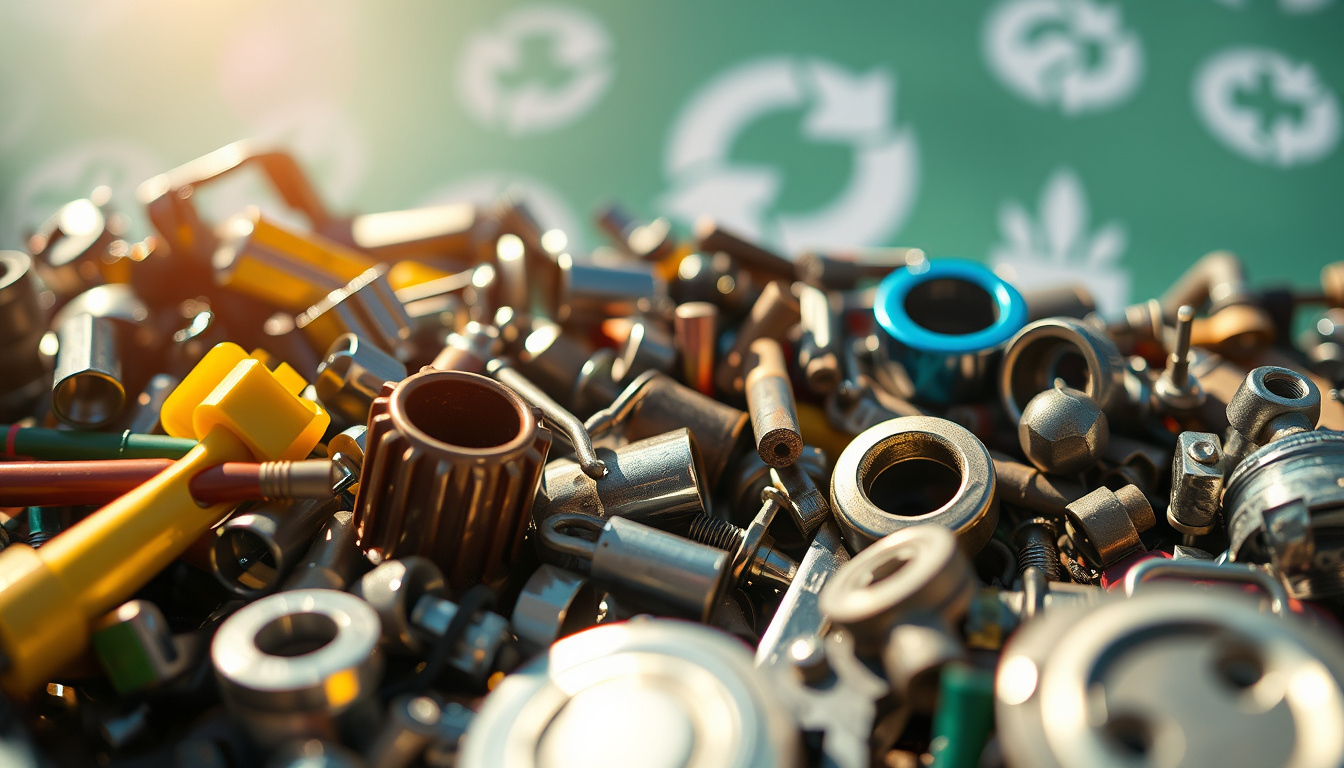In today’s environmentally conscious world, metal recycling has become a vital component of sustainable living. Not only does metal recycling help reduce landfill waste, but it also conserves natural resources and saves energy. Whether you’re an individual looking to do your part or a business aiming to implement eco-friendly practices, understanding how to maximize your environmental impact through metal recycling is essential. In this article, we will explore practical metal recycling tips, from sorting to proper disposal, to make your efforts more effective and rewarding.
Why Is Metal Recycling Important?
Before diving into tips, it’s crucial to understand why metal recycling holds such significance. Metal is one of the most recyclable materials worldwide, and unlike some other waste products, it doesn’t degrade or lose quality when recycled. Recycling metal helps reduce greenhouse gas emissions, decrease mining activities that damage ecosystems, and conserve finite raw materials. According to the Environmental Protection Agency (EPA), recycling aluminum cans saves up to 95% of the energy required to produce new aluminum from raw ore (source). By adopting effective metal recycling habits, you contribute significantly to a healthier planet.
Getting Started: Recognize Which Metals Are Recyclable
First, identify which types of metal are suitable for recycling. Common recyclable metals include:
- Aluminum (cans, foil, siding)
- Steel (cans, appliances)
- Copper (wiring, pipes)
- Brass and bronze (decorative items, fixtures)
- Cast iron (old cookware, machinery parts)
- Lead (batteries, some electronics)
Note that some metal items may contain hazardous substances, so handling with care and proper disposal is essential.
Metal Recycling Tips to Maximize Your Impact
- Sort Your Metals Carefully
Effective metal recycling begins with proper sorting. Keep recyclable metals separate from non-recyclables and hazardous waste. Rinse metal containers like cans and tins to remove food residues—this prevents contamination during recycling. Use designated bins for different metals if possible. Proper sorting ensures higher quality recycling, which can be more easily processed into new products.
- Remove Non-Metal Components
Many metal items, such as appliances or electronics, contain plastic, rubber, or electrical components. Remove these non-metal parts before recycling. For example, detach plastic handles or rubber gaskets from appliances. This process not only expedites recycling but also reduces processing costs and environmental harm.
- Flatten and Compact Metal Items
Flattenting aluminum cans and other lightweight metals reduces their volume, making transport more efficient and decreasing the carbon footprint associated with shipping. Use your hands or a tool to crush cans without damaging them excessively. Compacting metals can significantly lower transportation costs and emissions.

- Properly Store and Protect Recyclables
Store your metals in a clean, dry place to prevent rusting and deterioration. Keep recyclables away from moisture and chemicals. Using durable containers designated for recycling keeps the process organized and prevents contamination.
- Stay Informed About Local Recycling Regulations
Different regions have different rules regarding metal recycling. Contact your local recycling center or municipal waste management office to understand accepted materials, drop-off locations, and collection schedules. Participating in community recycling programs maximizes your impact and ensures proper disposal.
- Recycle Electronic and Automotive Metals Responsibly
Electronics and vehicles contain valuable metals like copper and lead, but mishandling can pose health and environmental risks. Always use certified e-waste recyclers or scrap yards specializing in hazardous materials. Proper disposal prevents toxic substances from leaching into the soil and water.
- Support Recycled Metal Products
Buy products made from recycled metals whenever possible. This creates demand for recycled materials and contributes to a sustainable economy. Look for labels indicating the use of recycled content, such as "recycled aluminum" or "recycled steel."
A Handy Checklist for Effective Metal Recycling
- Rinse all metal containers before recycling
- Remove non-metal parts and contaminants
- Flatten cans to save space
- Store metals in a dry, safe location
- Verify local recycling guidelines
- Use certified recyclers for electronics and batteries
- Support recycled metal products
The Environmental Benefits of This Approach
Maximizing your metal recycling efforts amplifies positive environmental effects. Recycling metals reduces mining activities—lessening habitat destruction and pollution—and consumes significantly less energy compared to producing metals from raw ore. For example, recycling copper uses approximately 85% less energy than mining and processing new copper (source). Additionally, it decreases greenhouse gas emissions, conserving vital ecosystems and combating climate change.
Frequently Asked Questions about Metal Recycling
Q1: How can I tell if a metal item is recyclable?
A: Generally, metals like aluminum, steel, copper, brass, and bronze are recyclable. Look for recycling symbols or check with local facilities. If unsure, contact your recycling center for guidance.
Q2: What are common mistakes to avoid in metal recycling?
A: Avoid contamination by not mixing non-metal materials, leaving food residues on cans, or disposing of hazardous metals like batteries in regular bins. Proper sorting and cleaning are essential.
Q3: How does recycling metal impact the environment?
A: Recycling metal reduces energy consumption, lowers greenhouse gas emissions, diminishes mining-related environmental damage, and conserves natural resources—all crucial for a sustainable future.
Expert Citation and Additional Resources
For more detailed information on the environmental benefits of metal recycling, visit the EPA’s dedicated page on waste reduction and recycling (source). Engaging with reputable organizations ensures you’re applying best practices and staying informed.
Conclusion: Your Role in Sustainable Metal Recycling
Maximizing your environmental impact through metal recycling is both achievable and impactful. By adopting these practical tips—such as proper sorting, cleaning, and supporting recycled products—you actively contribute to ecological preservation and resource sustainability. Every item recycled counts toward a cleaner, greener planet. Begin today: audit your home or workplace for recyclable metals, implement these strategies, and encourage others to do the same. Together, we can turn waste into a resource and make a significant difference for future generations.
Ready to make a change? Start small but think big. Your commitment to effective metal recycling can drive meaningful environmental progress. Join the movement and help create a more sustainable world—one recycled metal item at a time.
Junk Guys Orange County
Phone: 949-629-4960
Website: www.junkguysoc.com
Email: junkguysoc@gmail.com
